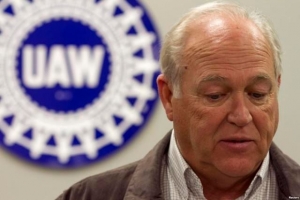
- Home
- About
- Campaigns
- PDA Radio
- Contact Us
- Downloads
- Join Us
- Donate
- Events
- Benefit Kitchen
Williams: Fast track hurts working families
About 20 million working people in this country need good jobs and an economy to rebuild the middle class. A threat to that growth and stability for many Americans is what is before Congress right now: fast track negotiating authority for trade agreements.
Stop fast-track authority from removing the voice of the 100 percent
The wellbeing of people, not profits, must be the goal of U.S. trade agreements. Given how today’s agreements will broadly impact the daily lives and livelihoods of all Americans – and tens of millions around the world – we cannot afford to have them guided by partisan politics or the narrow interests of large corporations.
On Capitol Hill: ‘Big Tent’ News Conference Shows Big Opposition to Fast Track, TPP
An amazing line-up of Members of Congress, union activists, environmental leaders, people of faith, small business and community leaders stood together on Capitol Hill today to show the broad and growing opposition to Fast Track authority for trade deals like the Trans-Pacific Partnership.
Stopping the Biggest Corporate Power Grab in Years
How fighting back against one arcane, Nixon-era trade negotiating procedure could put a stop to a global corporate coup.
Is Push for Corporate-Friendly Trade Deal Top 2015 Priority for White House?
Critics say TPP represents an anti-democratic set of policies that have more to do with consolidating corporate power across international borders than boosting so-called "free trade"
Sanders: TPP Trade Deal a ‘Disaster’
U.S. Sen. Bernie Sanders (I-Vt.) said today he will oppose a major global trade deal that would lead to fewer jobs and lower pay for workers in the United States.
Sanders said he would work with organized labor, environmental groups and other opponents of a 12-nation Trans-Pacific Partnership that the White House hopes to rush through Congress in the coming year. He issued a statement citing 10 reasons to oppose the agreement.
Can Elizabeth Warren, Bernie Sanders And Sherrod Brown Stop The TPP?
Alan Grayson called the TPP "the final nail in the coffin of the middle class in this country." Rosa DeLauro (D-CT), whose husband worked to pass NAFTA and whose tenant-- Rahm Emanuel-- is credited with getting it through the House, said "Enough is enough: no more offshoring, no more NAFTA-style trade deals."
Obama Ready to Defy Base in Order to Advance Trans-Pacific Partnership
In a speech before CEOs of major U.S. corporations, Obama indicates he's ready to go head-to-head with Democrats, labor unions, and environmentalists on trade deals







